Marine hydrolysates improve plant diets for aquaculture production
Researchers from the Interdisciplinary Center for Marine and Environmental Research at the University of Porto (CIIMAR-UP), Portugal and the Abel Salazar Institute of Biomedical Sciences (ICBAS-UP), Portugal discover that marine hydrolysates can be a good option to improve European sea bass plant diets in aquaculture increasing its growth and immune response.
Vegetable proteins have been a very importante for the aquaculture industry, at a time when the availability and prices of fish meal and fish oil are so volatile that make the production of carnivorous species such as Atlantic salmon, sea bass or sea bream, completely unsustainable. However, the vegetable raw materials used in the diets of these species have not been able to supply all the nutritional needs of the organisms leading to a decrease in the immune response of the fish, as well as in its productive performance. Thus, there continues to be a high dependence on marine ingredients in the design of diets for aquaculture.
In the study led by CIIMAR and ICBAS, recently published in the international scientific journal Aquaculture, in Open Access, the work team describes promising data on the immune response and growth of European sea bass (Dicentrarchus labrax) when hydrolysates of Peruvian anchovy and giant squid are used to strengthen diets rich in vegetable proteins.
According to the results obtained, some hydrolysates, managed to mitigate the negative effects caused by vegetable proteins in the diet fish, improving their immune status and promoting growth. In vitro tests showed that, in general, all marine hydrolysates conferred resistance against pathogens in fish, especially against bacteria belonging to the Vibrionaceae family. In vivo tests showed that the addition of 3% of marine hydrolysates could replace 12.5% of fish meal in vegetable diets, leading to an improvement in the immune response and the growth of European sea bass. This study thus presents an excellent option to consider in the production of more sustainable diets for aquaculture. It should also be noted that these hydrolysates can be obtained from less noble components of animals (by-products) contributing to the promotion of a circular economy.

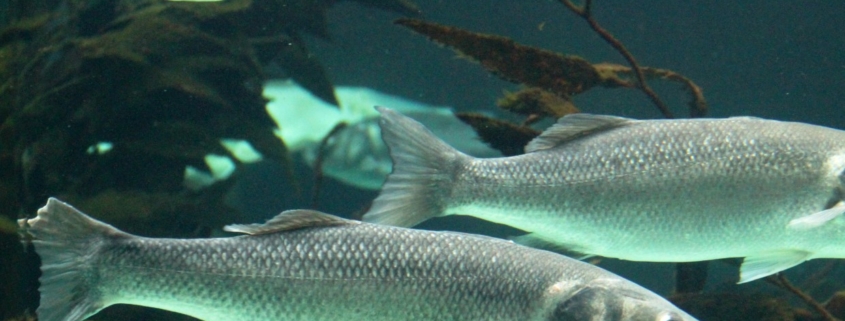
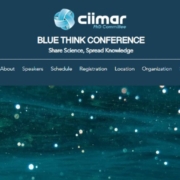
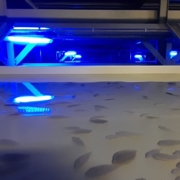
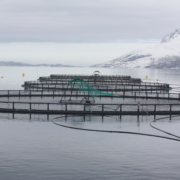
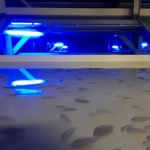
Leave a Reply
Want to join the discussion?Feel free to contribute!